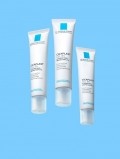Study points to cancer-risk from petroleum-based cosmetics
Group (EWG) suggests that a significant number of cosmetic and
toiletry products with a petroleum-base may contain a
cancer-causing impurity called 1,4-dioxane.
The group says that despite the fact that this impurity is easily removed during processing, it appears that many companies are neglecting to do so, something that is putting consumers at risk.
A computer assessment of 15,000 cosmetics found that 22 per cent of all cosmetic and personal care products may be contaminated with 1.4-dioxane, an estimate that the EWG says is based on 'its common presence in workhorse detergenet-like ingredients that the cosmetics industry uses in a wide array of products'.
The group says that this assessment is backed up by new product tests which found that that the cancer-causing chemical was found in 18 of more than two dozen products, 15 of which were marketed towards both babies and children.
Breaking the findings down, the group reported that 57 per cent of all baby soaps contained the chemical and 34 per cent of all body lotions. However, the biggest offender was hair relaxers, with 97 per cent of all products found to contain the chemical.
Although the group says that its latest study has chosen to highlight 1.4-dioxane, it says that this particular chemical is one of a number of cancer-causing substances commonly found in cosmetic and personal care products on sale in the US.
According to its statistics 80 per cent of cosmetic and personal care products sold in the country contain one or more of around 24 known impurities that have been linked to cancer.
As an integral part of its campaigns EWG has consistently stressed the fact that the FDA does not systematically enforce the testing of cosmetic ingredients for such impurities and is unable to enforce safety testing of finished cosmetic products, a situation the lobby group is working towards changing.
"As a start, we recommend that consumers choose products free of carcinogenic impurities," the group said in a statement.
"To avoid 1,4-dioxane, read ingredient labels and avoid any of the 56 cosmetic ingredients that include the clauses 'PEG,' 'xynol,' 'ceteareth', and 'oleth'."
















